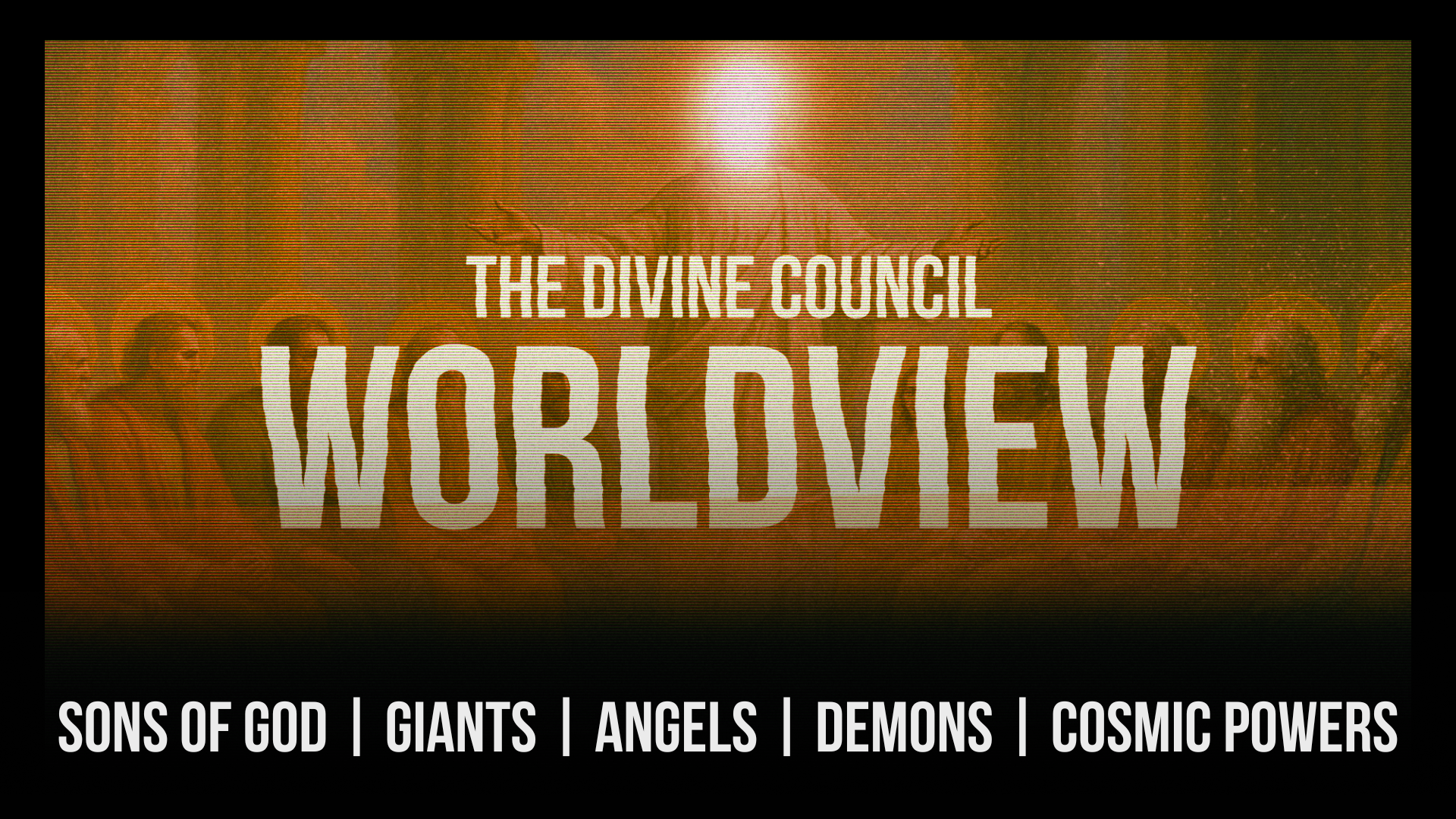
The Unseen Battle: Spiritual Warfare, the Three Rebellions, and Christ’s Victory Over Dark Powers (by Joel Muddamalle)
In his book, The Unseen Battle, Joel Muddamalle develops the concept of spiritual warfare through the Bible’s supernatural worldview. The book explains why the world looks spiritually fractured, politically chaotic, and morally contested. The book is a biblical-theological work, solidly grounded in Scripture and the Ancient Near Eastern (ANE) context. Muddamalle organizes the story of spiritual warfare around a supernatural framework of God’s supernatural and human families. He further explores how the relationship between these two households informs the narrative of conflict, rebellion, and redemption in the biblical text. The goal of The Unseen Battle is to bring understanding of the powers at work in the world and to highlight the order brought through Christ’s victory over all things.

Gods, Demons, or Angels? Who are the divine beings who rival Yahweh?
You may or may not be aware of the recent debate between some classically Reformed voices and some of the more ‘fringe’ or DCW (Divine Council Worldview) voices regarding how we should speak about spiritual beings described in Scripture. The debate seems esoteric to many, but to others it's a significant argument as it touches on fundamental questions in orthodox Christianity about biblical interpretation and the nature of God. More importantly, this is a conversation where both sides share far more common ground than the dogmatic exchanges suggest.
![[Review] EXPANDED: THE UNSEEN REALM](https://images.squarespace-cdn.com/content/v1/62432fcf146757356a34a5b9/1758220086783-LGEIHXK6T8NLZZ1VI9AT/What+the+Unseen+Realm+Didn%E2%80%99t+Address+%281%29.png)
[Review] EXPANDED: THE UNSEEN REALM
The expanded edition of The Unseen Realm adds over 17,000 words, twenty-four expanded chapters, a new appendix, and more, making it about 175 pages longer than the original. Released by Lexham Press in a deluxe hardcover with striking artwork, it serves as a worthy tribute to Michael Heiser’s legacy. The book challenges Western Christianity’s flat, naturalistic view of Scripture by recovering the biblical authors’ supernatural worldview. Some readers may find its depth demanding, especially those new to biblical theology, but many will welcome its insights and clarity on passages often called “weird” or confusing. The expansion integrates material once only online, weaving it into the book to present Heiser’s broader reflections. For these reasons, I give the expanded edition a full ⭐⭐⭐⭐⭐, recommending it both to long-time students of Heiser’s work and to thoughtful readers eager to engage the Bible on its supernatural terms.

What is the Atonement in the Bible? (Thoughts on Atonement from Dr. Michael S. Heiser)
Michael Heiser understood Christ’s atonement as a multifaceted reality best described as a kaleidoscope, where various theories—Penal Substitution, Ransom, Moral Influence, Governmental, Recapitulation, Christus Victor, and potentially others—each offer legitimate insights into the work of Christ without needing to be synthesized into a single system. He affirmed substitution as biblically essential while rejecting the notion that God’s wrath was poured out on Jesus in a punitive sense. Heiser emphasized biblical theology over systematic formulations, preferring to let the text speak in its own diversity. Among the models, he notably favored Christus Victor, seeing Christ’s death, resurrection, and ascension as the defeat of spiritual powers and the beginning of cosmic restoration.

The Divine Council Worldview (DCW)
The Divine Council Worldview (DCW) posits that a heavenly assembly of spiritual beings exists under the authority of the supreme God, both ordering the cosmos and human destiny. Its origins are seen in ancient Near Eastern religions such as Mesopotamian, Egyptian, Canaanite, and Hittite traditions, which depicted divine assemblies governing the world. The Bible engages with this worldview, describing God’s appointment of the nations to spiritual rulers, their subsequent rebellion, and God’s ultimate judgment over them. Key themes include the reality of lesser elohim, the hierarchy of heavenly beings, and the compatibility of the DCW with biblical monotheism. Ultimately, the Scriptures use divine council language to demonstrate Yahweh’s unrivaled supremacy over all spiritual powers.